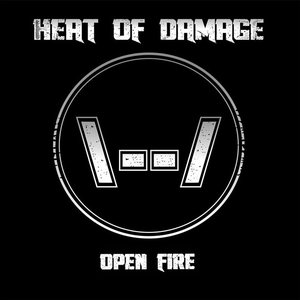Published on Feb 3, 1998
The worst thing I can say about guitarist Ronnie Montrose’s
moody, inventive 1978 solo debut is that it’s too damn short. At
just under 36 minutes,
Open Fire invariably leaves me wanting more.
Fresh from the second of three incarnations he’s attempted of
the Zeppelin-ish rock band bearing his last name (the first time
around in ’73-’74 having been Sammy Hagar’s big break), Ronnie went
into the studio to make
Open Fire with former Montrose players Jim Alcivar and Alan
Fitzgerald in tow and old pal Edgar Winter in the producer’s chair.
(Montrose himself had his own big break on Winter’s huge
They Only Come Out At Night album.) Stepping completely
outside of the hard-rock formula he’d been locked into up to that
point, Montrose created in
Open Fire one of the truly memorable instrumental albums in
rock history.
A lot of talented guitar players have tried and failed to make
all-instrumental albums that sustain the listener’s interest all
the way through. I inevitably groove hard to two or three tracks on
every Joe Satriani and Eric Johnson album — but the rest usually
feels like a waste of my time and their considerable talent. Even
the likes of Stevie Ray Vaughan conceded he needed some words to go
with those awe-inspiring solos.
Montrose succeeded where so many have failed by defying
expectations from start to finish, and doing it with as much
subtlety as flash. After five years spent seemingly begging to be
compared with Jimmy Page, playing virtually nothing but huge,
pounding, angular riffs, Montrose opened his solo debut with an
orchestral piece.
And not just some cheesy “see how hard I’m trying to be
different” snippet, either, but a driving, dynamic
horns-and-strings piece (“Openers”) that sounds like nothing so
much as the soundtrack to a downhill skiing movie (Montrose would
later contribute to just such an album, 1991’s
Born To Ski). At the climax, Montrose cleverly and almost
seamlessly segues into the next track, with a theremin taking over
the melody as the orchestra peaks out until the song is broken open
by the ripping good electric riff that propels you into “Open
Fire,” theremin thrumming away underneath the entire time. It’s a
hell of a ride, and it’s only the beginning.
Next up comes probably the album’s highlight and as unique a
sound as I’ve ever heard achieved. “Mandolinia” is a three-ring
circus of layered, cascading mandolins and mandocellos, the
impossibly sweet high notes bouncing off Winter’s swirling,
pulsating bass synthesizer, with occasional, precise guitar fills
unobtrusively occupying the middle ground. I don’t use the word
“masterpiece” very often, but here, it applies.
“Town Without Pity” is the one song that got any airplay off the
album, a number borrowed from the soundtrack of the old movie of
the same name. Straightforward as it basically is, Montrose sells
it by incorporating the orchestra’s horn section and wringing the
drama out of every sweeping note of his solos.
The album also features two very enjoyable fusion pieces —
“Heads Up” and “Rocky Road” — and two wonderful acoustic numbers,
the circling, hypnotic “Leo Rising” and the almost pastoral “My
Little Mystery,” featuring Winter on harpsichord.
Open Fire closes with a minor opus, the shifting, startling
six-minute “No Beginning/No End.” After a solid minute or so of
bizarre sizzling/shearing studio effects, it without warning cuts
into a sublime acoustic guitar meditation that builds over the
course of the next three minutes into a series of gently soaring
electric solos. It is, like the album it caps off, utterly unique
and masterful.
If you play guitar — or even if, like me, you just love music
that’s got real spark and creativity behind it — your music
library is not complete without this album.
